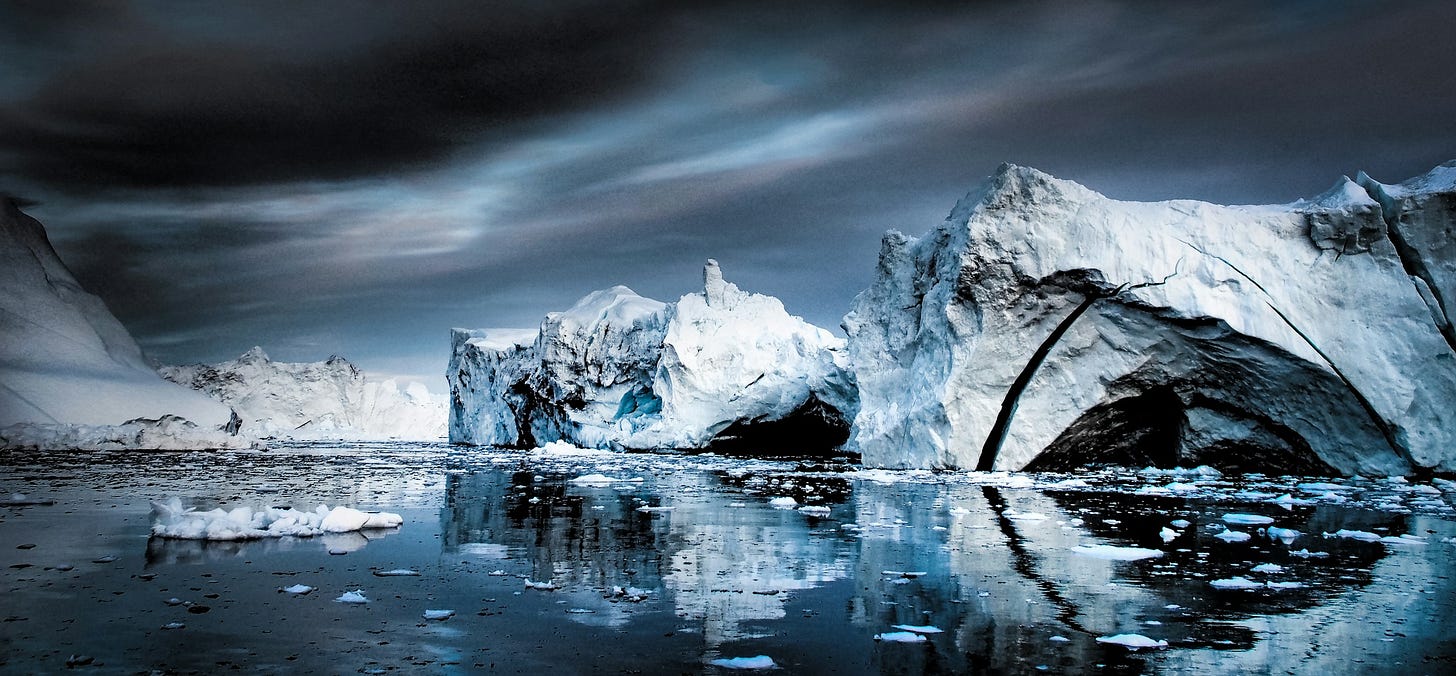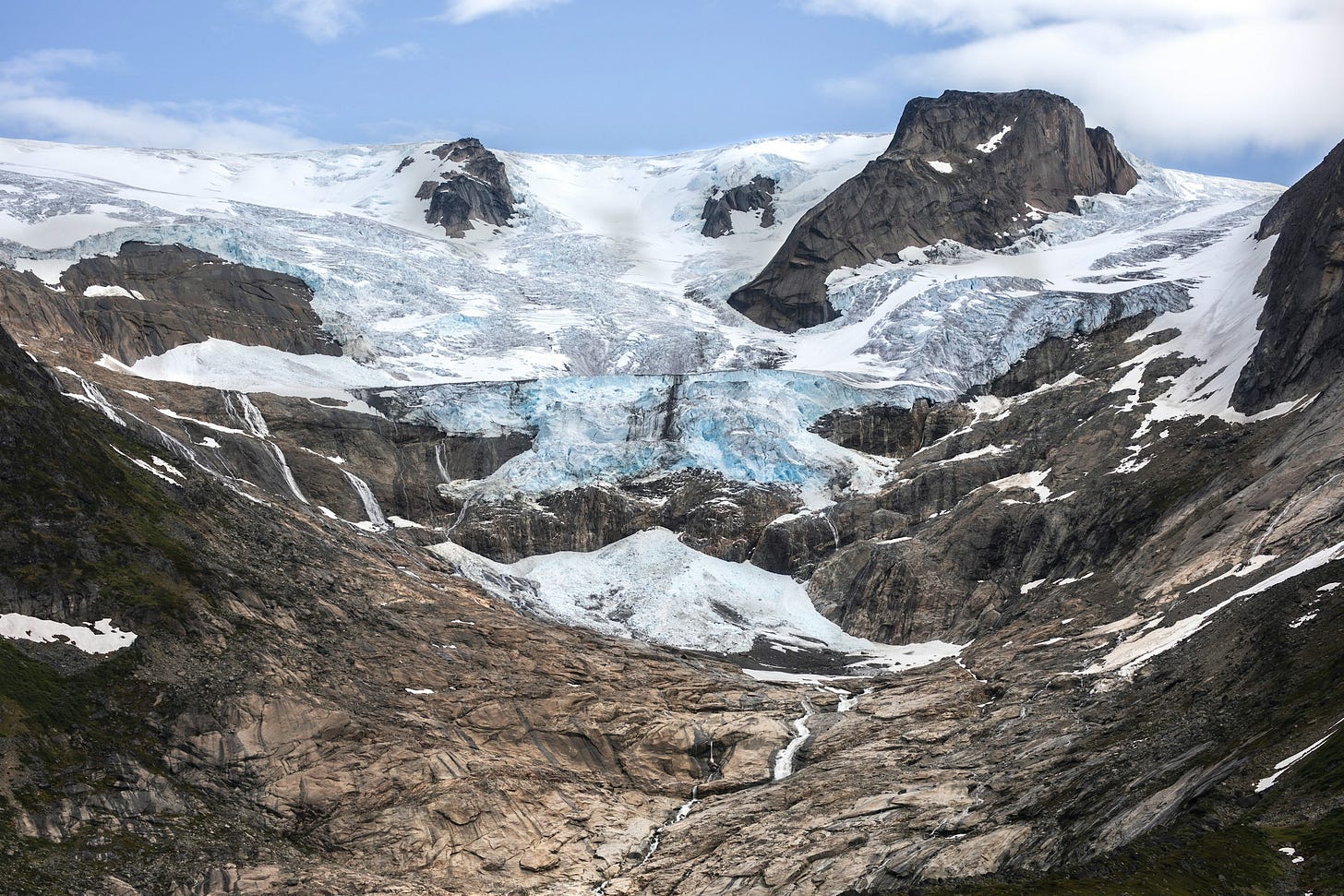
Should America take economic control of Greenland? Both the Prime Minister of Denmark—who oversees Greenland’s foreign affairs—and the Prime Minister of Greenland have repeatedly said that the territory is not for sale and have rejected the idea of annexation.
But American interest in Greenland has already had its intended effect. Forbes reported that Denmark is “open to a dialogue with the Americans on how we can cooperate, possibly even more closely than we already do, to ensure that American ambitions are fulfilled.”
Even if America taking economic control of Greenland seems imperialistic, rephrasing the question reframes the stakes. As in, we might ask the exact same question but with different wording.
Should China have access to rare earth elements in Greenland?
The shift in wording highlights Greenland’s role in great power competition and underscores the strategic value of its location and resources. Let’s kick our mental exercise off by considering Greenland’s significance on the world stage.
Greenland’s Strategic Value
Greenland’s strategic value has evolved over centuries, shaped by its unique location and resources. In 1721, Danish-Norwegian missionary Hans Egede led an expedition to Greenland to search for descendants of vanished Norse settlers. While Egede did not find the Norse, he established the settlement of Nuuk, which later became Greenland’s capital and marked the start of Danish-Norwegian rule. Over time, Denmark-Norway expanded its control. It established trading posts and integrated Greenland into the European mercantile system. After Denmark-Norway split in 1814, Greenland remained under Danish control.
Greenland’s modern strategic importance emerged during World War II when the US agreed to protect the island after Germany occupied Denmark. The US established military bases that served as critical waypoints for transatlantic flights, weather stations for Allied operations, and a source of cryolite, a key catalyst for aluminum production. During the Cold War, Greenland’s pivotal Arctic location became essential for monitoring Soviet activity and hosting early warning radar systems.
In 1953, Denmark ended Greenland’s colonial status and incorporated it into the kingdom. This granted its citizens representation in the Danish parliament and access to national welfare programs. Greenland achieved home rule in 1979, gaining control over its internal affairs. In 2009, it gained further autonomy, including authority over resources and justice, while Denmark retained control over foreign policy and defense.
As climate change opens new shipping routes and enhances resource accessibility, Greenland’s economic and geopolitical significance grows. Greenland’s vast reserves of rare earth elements and strategic Arctic location make it a focal point for global competition.
Rare Earth Elements
Greenland has some of the world’s biggest stores of rare earth elements (REE), known by unfamiliar names such as neodymium, dysprosium, and praseodymium. These elements are essential for producing wind turbines, electric vehicle motors, and military equipment.
Despite their name, REEs are relatively common in Earth’s crust. However, their distribution and extraction present a mining challenge. REEs are rarely found in concentrated, profitable, mineable deposits. Instead, they are typically dispersed across vast areas, mixed with other elements. Due to their chemical similarity, extracting and refining them is complex and costly. Greenland’s reserves are especially valuable because they are believed to exist in relatively high concentrations, making them potentially more economical to extract than deposits found elsewhere.
Greenland’s untapped resources would allow Western nations to diversify their supply chains, reducing their dependence on China, which dominates the global REE market.
China controls approximately 90% of global rare earth production. Approximately 80% of the REEs used domestically in the US are imported from China. This dominance is due to its vast reserves, advanced refining infrastructure, and government policies prioritizing REE production as a strategic industry.
China’s near monopoly gives it significant leverage in geopolitical and economic arenas. Rare earth elements are critical for manufacturing everything from smartphones and renewable energy technologies to advanced military systems. This dependence poses a strategic vulnerability for Western nations, as disruptions to China’s supply—from trade disputes, export restrictions, or internal policy changes—could severely impact key industries. Even if Chinese companies wanted to negotiate business arrangements in good faith, the Chinese government controls all private businesses in China at its whim.
Greenland’s potential to become an alternative source of REEs represents an opportunity to mitigate this risk and secure a more stable and diversified supply chain for these critical materials.
However, rare earth elements are only part of Greenland’s strategic significance. Because of its strategic Arctic location, Greenland is a focal point for global competitors.

Strategic Arctic Location
Because we tend to look at flat maps rather than globes, it’s easy to overlook that the Earth is round and the shortest path from America to Europe lies over the Arctic. For example, the distance from Los Angeles to Paris, France, is approximately 5,700 miles over the Arctic and 8,300 miles through the Panama Canal.
These Arctic routes follow what mathematicians even before the time of Columbus called the Great Circle Route. This Great Circle Route is the shortest path between two points on the Earth’s surface. From North America, it typically passes near or over regions like Greenland and the Arctic, depending on specific flight or shipping planning considerations.
Although the distance difference may not seem significant, even small reductions in distance can translate to significant savings in time, fuel, and emissions. Arctic routes offer the potential for more efficient transit between major markets in North America, Europe, and Asia, bypassing clogged routes through the Panama or Suez Canal. Greenland’s strategic location along these potential routes underscores its importance in shipping, aviation, trade, and defense logistics.
Of course, the Arctic has other transit challenges. It’s cold. Historically, extreme Arctic cold and thick ice made navigation treacherous. Shipping lanes like the Northwest Passage and Northern Sea Route were largely impassable for most of the year. But it’s less cold now, and previously unavailable shipping routes are opening.
This accessibility extends beyond shipping routes. The retreating ice uncovers untapped natural resources, including oil, gas, and rare earth element reserves. This new territory is fueling a modern scramble for control over the Arctic.
The US has long viewed the Arctic as a critical defense and economic security frontier. Military bases like Thule in Greenland and several in Alaska cement our commitment.
Meanwhile, China aggressively seeks influence. In 2018, It declared itself a “near-Arctic state” and incorporated Arctic development into its Belt and Road Initiative, the Polar Silk Road. China’s motives are clear. Shipping from China to Europe through the Suez Canal in Egypt takes 48 days and only 24 days by way of the Northeast Passage through the Arctic.
In response, US leaders drew firm lines. In 2019, US Secretary of State Mike Pompeo stated, “There are only Arctic states and non-Arctic states…No third category exists — and claiming otherwise entitles China to exactly nothing.”
Ultimately, new shipping lanes and resource opportunities have turned the Arctic into a strategic chessboard. Control over Greenland and other key locations could shift the balance of global influence. America cannot yield its position in this great power competition. If we cede influence under the guise of fairness, rival nations will not return the favor. America must act alone and with partner nations to create favorable global conditions and ensure freedom of action and influence for the American people and our allies.
The strategic necessity of great power competition and the Constitution compels us to protect national interests.
Great Power Competition
Nations have no choice but to ensure their survival and protect their interests. If they do not, or cannot, protect their interests, their competitors will not cede them prosperity. The absence of a world government creates a globally competitive environment that compels states to prioritize their security, interests, and the stability of their strategic alliances.
In this anarchic international order, nations act in their own interest. They make choices that maximize their benefit and strength—even at the expense of others. We form coalitions and partnerships as strategic efforts to enhance our power, stability, and influence. Preserving our business interests requires denying competitors the same advantages we seek, which ensures a favorable position in the global hierarchy.
This competitive reality is on full display in the Arctic. The US, Russia, and China are vying for control of a region where melting ice has opened new shipping lanes and exposed previously buried resources. The Arctic is a critical arena for global rivalry. The security and prosperity of the American people and our allies require independent action and strategic partnerships to shape favorable conditions. These efforts are essential to maintaining freedom of action and influence in this rapidly evolving region.
From America’s perspective, this imperative aligns with Constitutional guiding principles. The Constitution does not explicitly state that maintaining favorable business conditions is a federal responsibility; however, specific provisions inherently support this objective.
The Commerce Clause (in Article I, Section 8, Clause 3) grants Congress the power to regulate trade with foreign nations, ensure economic stability, and facilitate commerce. However, the Clause does not grant Congress the power to regulate trade under conditions that do not benefit the American people. An implied mandate in regulating trade, ensuring economic stability, and facilitating commerce is to achieve these conditions under favorable terms.
Further, if the Commerce Clause isn’t sufficient to achieve commerce under favorable terms, the Constitution grants Congress the authority to raise and support armies (in Article I, Section 8, Clause 12). Nations that can establish favorable international conditions attract international investment, promote trade, and create new economic opportunities. Defense and the economy are interconnected. Economic power sustains defense, while defense safeguards markets and secures supply chains.
Now for our Question
Should America take economic control of Greenland?
Let’s rephrase the question to reframe the stakes.
Should China have access to rare earth elements in Greenland?
Let’s review some key points.
Greenland’s Arctic location makes it indispensable for trade, defense, and global influence.
The United States and Greenland have a longstanding and cooperative partnership.
China’s dominance in rare earth production presents a strategic vulnerability for America; Greenland’s resources offer a solution.
Climate change is unlocking Arctic shipping lanes and revealing untapped resources. Greenland’s strategic position along Arctic trade routes and the Great Circle Route solidifies its role as a vital hub for global shipping, aviation, and defense operations.
Safeguarding influence in Greenland is crucial for creating favorable conditions for the American people and our allies while preserving freedom of action and influence in the Arctic. This reflects the strategic necessity of great power competition and the Constitutional duty to protect national interests.
Securing our position under favorable terms requires denying our competitors those advantages. Therefore, we must actively prevent Chinese access to Greenland and other Arctic regions under the control of America and our allies.
Should the United States take control of Greenland by military force? Absolutely not. Denmark is a steadfast ally and a NATO member. Instead, we should pursue a collaborative arrangement that benefits Denmark and America, strengthening our partnership and mutual interests.
May God bless the United States of America.












